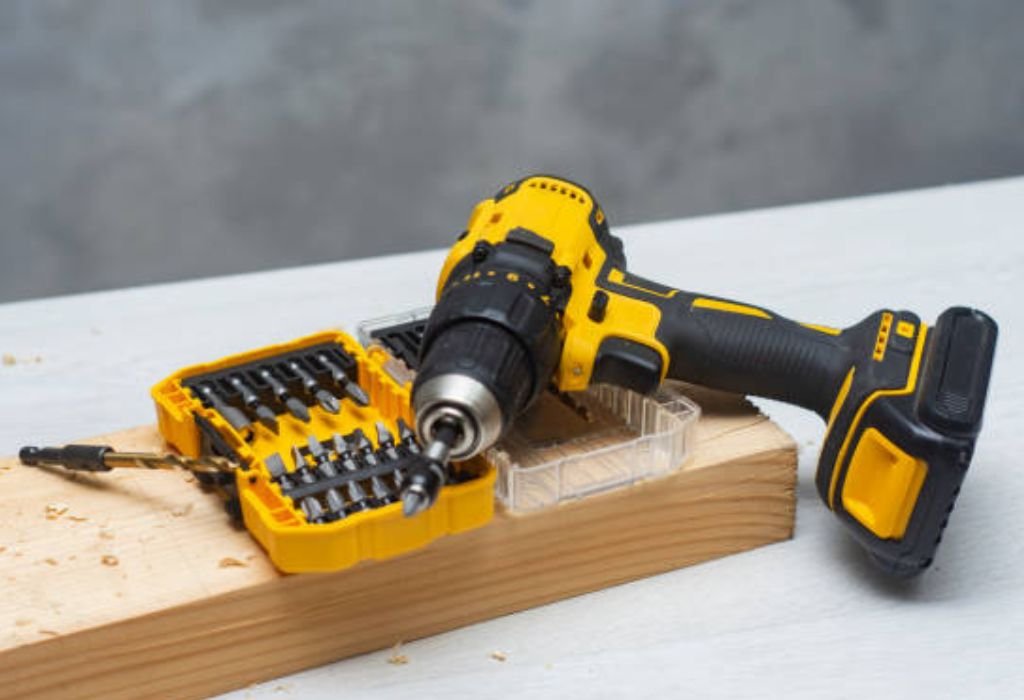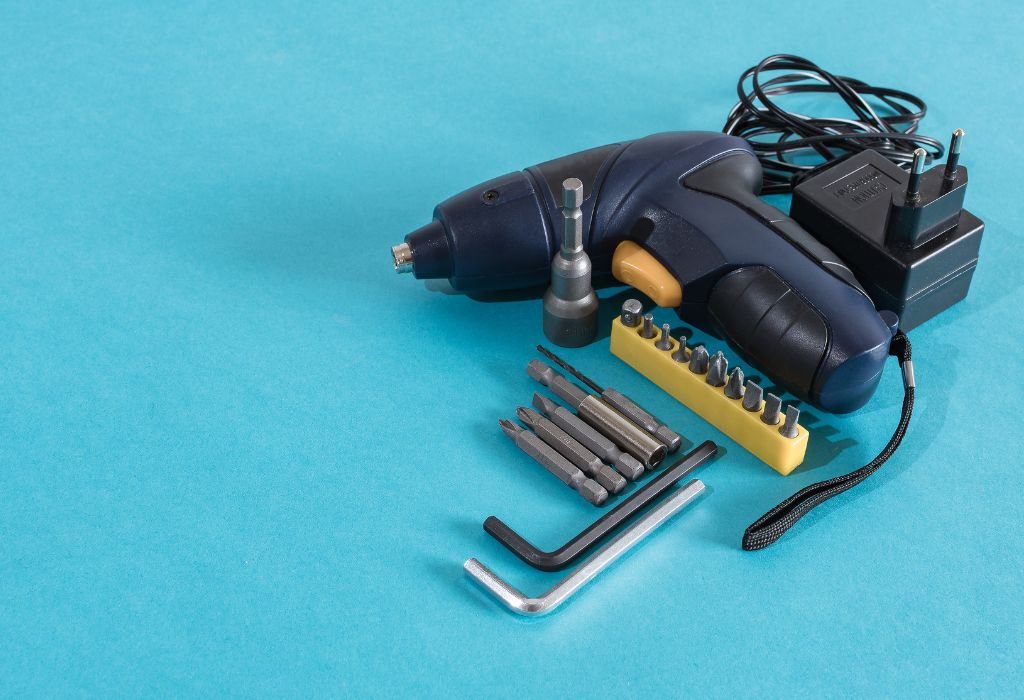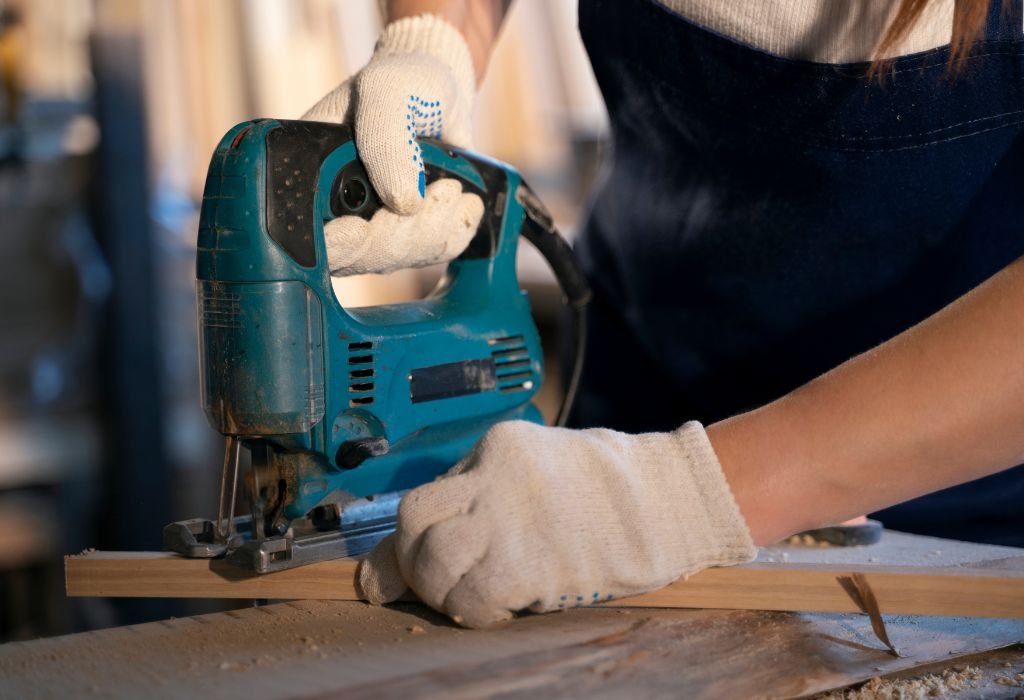Many DIYers and professionals eventually face a pile of old cordless drill batteries that no longer hold a charge.
Throwing them into the trash may seem like the easiest option, but it creates serious environmental hazards.
Cordless drill batteries contain chemicals such as nickel, cadmium, and lithium that can leak into soil and groundwater if not handled properly.
Improper disposal can also create safety risks, including fires and toxic fumes.
The real challenge is that most people don’t know what to do with old cordless drill batteries once they stop working.
Fortunately, recycling programs, store drop-offs, donation options, and creative reuse provide safe alternatives.
According to the EPA, only about 5% of lithium-ion batteries are recycled correctly in the U.S. (EPA), which means millions end up polluting landfills.
This guide explores eco-friendly, safe, and practical solutions for dealing with old cordless drill batteries responsibly.
Why You Shouldn’t Throw Away Old Cordless Drill Batteries

Cordless drill batteries are made with materials that can harm the environment if not disposed of correctly.
When thrown in the trash, they can leak chemicals like cadmium and lithium into landfills.
These toxic materials seep into the soil and eventually reach water supplies.
Over time, they contribute to pollution that affects both wildlife and humans.
Old batteries are also a fire hazard.
Damaged cells can short-circuit and ignite in waste facilities.
Some regions have laws that prohibit throwing batteries into household trash.
Violating these laws may lead to fines or penalties.
Can I throw old drill batteries in the trash?
No, they contain harmful chemicals that pollute the environment.
Are old batteries dangerous?
Yes, they can leak toxins or even catch fire.
Is it illegal to trash them?
Yes, in many areas it is against waste disposal laws.
Do batteries harm soil and water?
Yes, chemicals contaminate ecosystems when they leak.
Why recycle instead?
It is safer, eco-friendly, and recovers valuable metals.
Recycling Options for Old Cordless Drill Batteries
Recycling is the most responsible solution for old drill batteries.
It prevents pollution and recovers valuable materials.
Manufacturers like DeWalt, Makita, and Bosch often have recycling programs.
You can return used batteries to participating service centers.
Retailers such as Home Depot, Lowe’s, and Batteries Plus provide free drop-off bins.
These programs accept many types of rechargeable batteries.
Community hazardous waste centers also handle battery disposal.
They ensure safe processing through certified recyclers.
Where can I recycle old drill batteries?
At hardware stores, recycling centers, or manufacturer programs.
Do hardware stores take them?
Yes, many chains offer drop-off bins for batteries.
What metals are recovered?
Lithium, nickel, cobalt, and other valuable elements.
Does recycling cost money?
No, most recycling programs are free.
Can all battery types be recycled?
Yes, including NiCd, NiMH, and lithium-ion batteries.
Repurposing and Reusing Old Batteries

Some old cordless drill batteries may still hold partial power.
These can sometimes be used for low-demand tasks.
DIY enthusiasts may repurpose battery cells for small electronics.
This includes flashlights, RC cars, or portable fans.
With proper knowledge, old packs can be turned into portable power banks.
This requires electrical expertise and safety precautions.
Schools and workshops may also use old packs for educational purposes.
They serve as teaching tools for electronics and recycling projects.
Can old batteries still be used?
Yes, for light-duty tools or devices.
Can I turn them into power banks?
Yes, but only with proper electrical knowledge.
Are DIY projects safe?
They carry risks if done incorrectly.
Can schools use them?
Yes, for experiments and training.
Should I attempt repairs?
Only if you understand battery safety.
Donation or Trade-In Programs
Many organizations and companies accept old batteries for recycling.
This includes community e-waste collection drives.
Some tool companies offer trade-in deals.
They provide discounts on new tools in exchange for old batteries.
Makerspaces or schools may accept them for projects.
They use the batteries to teach safe recycling practices.
Donation reduces waste and promotes community awareness.
It gives old batteries a purpose even after losing efficiency.
Can I donate old batteries?
Yes, to schools, workshops, or recycling drives.
Do manufacturers offer trade-ins?
Yes, some brands give discounts on new tools.
Is donation safe?
Yes, if the recipient handles them responsibly.
Where find donation programs?
Local e-waste events and tool retailers.
Does it help the community?
Yes, it supports sustainability education.
Preparing Batteries for Safe Disposal
Before dropping batteries off for recycling, prepare them correctly.
This ensures safety during storage and transport.
Always tape the battery terminals with non-conductive tape.
This prevents accidental sparks or short circuits.
Store batteries in a non-metal container.
Plastic bags or boxes work well for temporary storage.
Keep them in a cool, dry place until drop-off.
Avoid crushing or puncturing old packs.
Why tape the terminals?
To prevent short-circuits and fire hazards.
Can I store them in a plastic bag?
Yes, as long as terminals are taped.
Where should I keep them?
In a cool, dry area away from heat.
Can batteries explode?
Yes, if damaged or overheated.
Is preparation really necessary?
Yes, it ensures safe transport and recycling.
Environmental Benefits of Recycling Drill Batteries

Recycling old drill batteries prevents toxic waste from polluting the earth.
It also conserves valuable natural resources.
Metals like lithium, cobalt, and nickel are recovered.
These materials are reused in new batteries and electronics.
Recycling reduces the demand for mining.
Mining often harms landscapes and ecosystems.
It also saves energy compared to extracting raw materials.
This makes battery recycling a key part of sustainability.
Does recycling really help?
Yes, it reduces waste and conserves resources.
What materials are reused?
Lithium, nickel, cobalt, and other metals.
How does it help the planet?
It prevents chemical pollution in nature.
Does recycling save energy?
Yes, compared to producing new metals.
Is recycling part of sustainability?
Yes, it supports a circular economy.
Future of Cordless Drill Battery Disposal
The future of battery disposal is shifting toward eco-friendly systems.
Advances in recycling technology make the process more efficient.
Lithium-ion batteries are becoming more common in tools.
Recycling facilities are adapting to handle them safely.
Governments are introducing stricter e-waste regulations.
This pushes manufacturers and retailers to expand recycling programs.
More companies are offering buy-back and trade-in options.
This helps close the loop and promote circular battery economies.
Will recycling become easier?
Yes, as drop-off programs expand.
Are lithium batteries harder to recycle?
Yes, but new technologies are improving the process.
Will governments enforce stricter rules?
Yes, many already require safe disposal.
Are new batteries more eco-friendly?
Yes, many are designed for recyclability.
Is the future sustainable?
Yes, with better recycling and eco-friendly designs.
Conclusion
Old cordless drill batteries should never be thrown in the trash.
They contain hazardous materials that must be handled responsibly.
Recycling programs, donation opportunities, and trade-in deals offer safe solutions.
Repurposing for small projects is also an option with proper precautions.
Preparing batteries for safe disposal prevents accidents.
Simple steps like taping terminals and using containers make a difference.
By recycling, you protect the environment and conserve valuable resources.
Choosing eco-friendly disposal keeps your workshop green and sustainable.

I’m John F. Nicholas, the founder, lead writer, and drill enthusiast behind 101drill.com. With years of hands-on experience in power tools and DIY projects, I created this platform to share practical knowledge, expert tips, and real-world insights to help others master the art of drilling.
